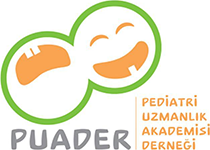A case of propionic acidemia during late infancy presenting with metabolic acidosis
Ömer Furkan Kızılsoy1 , Didar Arslan2
, Didar Arslan2 , Ahmet Burak Civan3
, Ahmet Burak Civan3 , Murat Tutanç4
, Murat Tutanç4 , Gaffari Tunç5
, Gaffari Tunç5
1Bursa City Hospital, Pediatrics, Bursa, Türkiye
2Uludağ University, Pediatric Intensive Care, Bursa, Türkiye
3Bursa City Hospital, Pediatrics, Bursa, Türkiye
4Bursa City Hospital, Pediatrics, Bursa, Türkiye
5Yüksek İhtisas Training and Research Hospital, Neonatology, Bursa, Türkiye
Keywords: Hemodialysis, infant, metabolic acidosis, propionic acidemia
Abstract
Propionic acidemia is a disorder of amino acid metabolism caused by propionyl-CoA carboxylase deficiency, which results in the accumulation of propionic acid. It is inherited in an autosomal recessive manner, and its incidence has increased in areas like our country, Türkiye, where consanguineous marriages are common. During exacerbations, patients may demonstrate hyperammonemia, metabolic acidosis, and hyperglycinemia, as well as increased levels of methyl citrate, 3-OH propionate, and propionylglycine. While the disease may have an asymptomatic course, it may present with poor feeding, failure to thrive, lethargy, and seizures. A sixteen-month-old male patient had been admitted to the emergency department with vomiting, hyperpnea, and impaired consciousness and was then referred to us after the detection of severe metabolic acidosis with the suspicion of metabolic diseases. He had a Glasgow coma scale of five and was intubated. He was taught to be fed eggs on his last meal for the first time two hours before the onset of complaints. His parents were fourth-degree relatives. On-admission blood gas analysis revealed the following: pH: 6.88, pCO2: 20.2 mmHg, HCO3: 3.8 mmol/L, cBE: -29.4 mmol/l, lactate: 1.3 mmol/l, with urinary ketone: +++, ammonia: 130 umol/L. With the detection of metabolic acidosis with an increased anion gap, ketonuria, and mild hyperammonemia, a preliminary diagnosis of metabolic disorder was considered, and oral nutrition was discontinued. He was consulted by the Department of Pediatric Metabolic Diseases, and treatment with carnitine, biotin, hydroxycobalamine, high-dose dextrose, insulin, and sodium benzoate was initiated. Since the patient’s acidosis was refractory, hemodialysis was initiated. Work-ups obtained at 24 hours of hemodialysis were as follows: pH: 7.35, pO2: 29.6 mmHg, pCO2: 37.5 mmHg, HCO3: 20.9 mmol/L, and ammonia: 22 umol/L. The patient’s metabolic testing was consistent with propionic academia. Treatment with a protein-restricted diet (1 g/kg/day), L-carnitine (100 mg/kg/day), and biotin (10 mg/day) was recommended. Metabolic disorders should be considered in the differential diagnosis of patients with refractory metabolic acidosis.
Cite this article as: Kızılsoy OF, Arslan D, Civan AB, Tutanç M, Tunç G. A case of propionic acidemia during late infancy presenting with metabolic acidosis. Pediatr Acad Case Rep. 2024;3(2):32-5.
The parents’ of this patient consent was obtained for this study.
The authors declared no conflicts of interest with respect to authorship and/or publication of the article.
The authors received no financial support for the research and/or publication of this article.

